In cyberspace, people can easily connect with each other, access information quickly and for free, learn new knowledge and skills... However, this also puts users in front of many pitfalls and challenges in ensuring security and order in the digital age. The following are common tricks and ways to prevent them:

Some ads for loans on Facebook.
Tricks
Fraud through hacking social network accounts: The subject takes over the use of social network accounts such as Facebook, Zalo, then impersonates the account owner to text others to borrow money or ask the victim to transfer money to other accounts for many different reasons. The victim often does not suspect because they think it is their relative or acquaintance who needs help, so they trust and transfer money without having to contact directly to check.
Fraud through sending and receiving gifts from abroad: Through social networking sites, the subject gets to know the victim, after a period of chatting and building trust, they will use the excuse of sending gifts, valuables, even foreign currency, gold to receive, manage, and keep. When the victim agrees, they will impersonate airport, customs, tax staff... to ask the victim to transfer money to complete customs clearance procedures and then appropriate it.
Online loan fraud: The subject impersonates a financial company and tries to approach people who need to borrow money through social networks. They will ask the borrower to provide personal information, such as: full name, phone number, photo of ID card/CCCD and pay a fee to support loan approval. After the victim has transferred money, they claim that the loan is not disbursed due to the borrower's information disclosure error, ask the borrower to continue to pay more money to fix it and promise to pay it back after disbursement. However, when the victim continues to transfer money, they take it and cut off contact.
Impersonating a bank to commit fraud: The subject impersonates a bank and calls the victim to inform them of a customer appreciation program, asking the victim to provide the phone number registered for Internet Banking, Mobile Banking services and the OTP authentication code to receive gifts; then, the subject takes over the account and transfers money to their account to appropriate it.
Online multi-level marketing scams: Subjects set up social networking sites to sell cosmetics, perfumes, functional foods, etc. They run ads, increase interactions to recruit sales collaborators. Many people, because of greed, are lured into becoming collaborators, having to spend money to buy goods from fraudulent lines, but then cannot sell them, and have to "hold" large quantities of goods of great value.
Fraud to recover lost Facebook accounts: Fraudsters will proactively seek information to contact the victim, they will ask the victim to provide personal information such as username, password, phone number, email address, OTP code, or credit card information to verify identity to recover the account, the subjects also ask the victim to pay a fee but after achieving their goal, they immediately cut off contact.
Selling counterfeit and fake goods on e-commerce platforms: According to the General Department of Market Management - Ministry of Industry and Trade , many businesses pay fees to Facebook and Google to advertise counterfeit and fake goods. In 2022, the Department of E-commerce and Digital Economy, Ministry of Industry and Trade removed 1,663 stores with 6,437 violating products; blocked 5 websites showing signs of taking advantage of e-commerce to trade in counterfeit, fake goods and goods of unknown origin.
Online gambling, harassment and “deviant” behavior
This type of crime shows signs of increasing in many popular forms such as football betting, lottery, betting under the guise of online games... They are tightly organized, on a large scale with increasingly sophisticated and secretive methods and tricks. Gambling websites and applications often run ads on Facebook, Google, YouTube and offer attractive rewards, valuable promotional codes to attract and entice participants.
Harassing calls and advertisements are appearing more and more: This is the result of the low awareness of protecting information data of a part of the population. In 2022, the Department of Cyber Security and High-Tech Crime Prevention and Control dismantled 3 special cases and prosecuted many defendants in the personal data trading ring on cyberspace. According to statistics, the number of internet users in Vietnam has reached over 70% of the population and personal data of more than 2/3 of the Vietnamese population is being stored, posted, shared and collected on cyberspace in many different forms.
A segment of users often have a negative view of all issues. Some people, just because they want to increase their interactions and satisfy their "virtual power" on social networks, have unintentionally or intentionally supported the attacks and sabotage of bad elements, thereby spreading discontent, one-sided and untrue views while not having enough skills and qualifications to analyze the messages that hostile forces and bad elements intentionally create and spread.
In addition, there are some users who think they have the right to defame and slander others on social networks, thinking that these are completely normal stories, but the consequences they bring are extremely serious. There have been many cases where authorities have handled acts of propagating false information on cyberspace.
Raising awareness of prevention
Internet users should only connect and interact with people they really know and trust. Be very careful when sharing private activities and personal information that can easily be used for fraud, such as: photos, hobbies, emails, phone numbers, home or work addresses, lists of relatives, etc.
Absolutely do not provide information related to bank accounts such as: phone numbers used for Internet Banking, Mobile Banking, OTP codes... to others. Do not access strange links, links to websites with unhealthy content that pose many risks of fraud. When making money transfers, you must clearly verify the recipient's identity, do not transfer without direct exchange or meeting.
Absolutely do not participate in forms of gambling on the internet such as football betting, lottery, betting through online games... Do not advertise, buy, sell, or use counterfeit or fake goods on electronic trading floors.
It is necessary to selectively absorb information accessed on social networks. Choose reputable, official websites or Party and State websites to register and follow. Use social networks in a civilized and conscious manner; know how to respect the dignity, honor, and rights of others; especially your own honor in each article, each image, each comment on social networks. Absolutely do not post or share articles or information that insults the honor and dignity, affecting the rights and legitimate interests of other organizations and individuals; do not spread fake news or untrue news; use offensive language, contrary to good customs and traditions...
The leading cause of the above risks is that users spend too much time on cyberspace, considering cyberspace as their living environment. There is a lot of private information shared for bad guys to easily access and carry out fraudulent acts. Some people are far from real life, freely expressing their thoughts, feelings, and opinions on social networks without being bound by space and time, leading to the manifestation of "power-crazed" on social networks, arbitrarily attacking others without thinking about the consequences; being far from real life also limits users from receiving much knowledge, authentic information, easily getting lost in the "matrix" of bad, toxic information, thereby degenerating and changing their ideology.
Use social networks intelligently and in a controlled manner, for your own safety as well as to contribute to ensuring security and order in cyberspace.
Internet users absolutely must not post, share, or like articles with information that incorrectly reflects the actual situation of political , economic, cultural, social, national defense, security, and foreign affairs in Vietnam; denies the revolutionary tradition and noble revolutionary nature of the armed forces; distorts the Party's work of preventing and combating corruption, etc. In fact, the information created by hostile forces is very sophisticated, mixed with truth and falsehood, difficult to identify, so when users come into contact with this information, they must equip themselves with political courage and solid social knowledge to avoid being lured or provoked. Any act of promoting distorted and anti-Party rhetoric will be strictly dealt with before the law. In addition, when running advertisements on social networking platforms, businesses must not allow advertising content to be attached to pages with content that is anti-Party and anti-State. |
KNOWLEDGE - EXPECTATION
Source







![[Photo] Award ceremony for works on studying and following President Ho Chi Minh](https://vphoto.vietnam.vn/thumb/1200x675/vietnam/resource/IMAGE/2025/5/20/a08ce9374fa544c292cca22d4424e6c0)
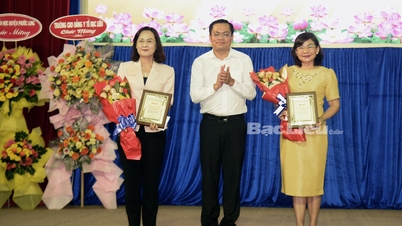


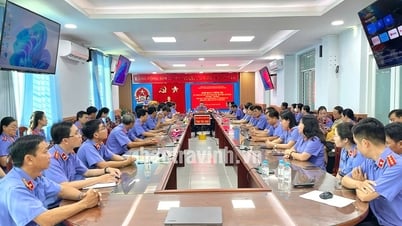

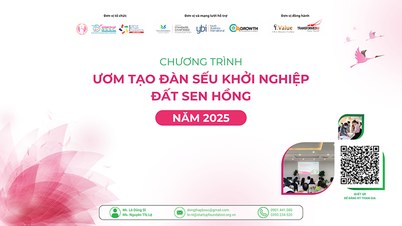











![[Photo] Vietnamese shipbuilding with the aspiration to reach out to the ocean](https://vphoto.vietnam.vn/thumb/1200x675/vietnam/resource/IMAGE/2025/5/20/24ecf0ba837b4c2a8b73853b45e40aa7)




























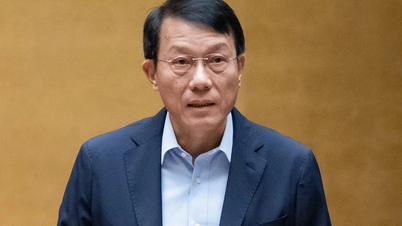




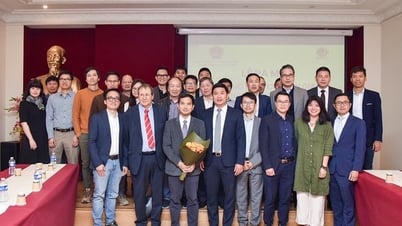
















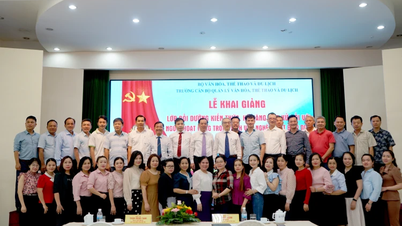










![[VIDEO] - Enhancing the value of Quang Nam OCOP products through trade connections](https://vphoto.vietnam.vn/thumb/402x226/vietnam/resource/IMAGE/2025/5/17/5be5b5fff1f14914986fad159097a677)
Comment (0)